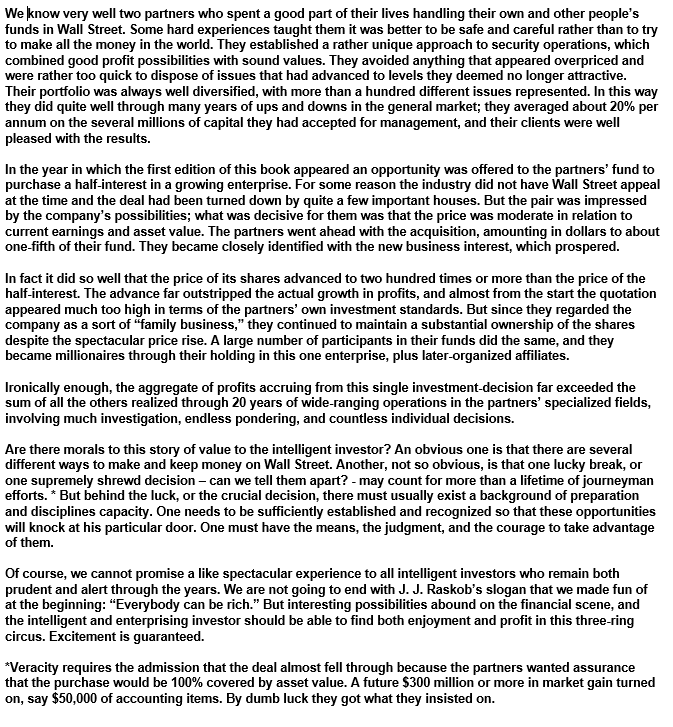Ben Graham managed to compound money at 20%/year for 20 years at his partnership following a value investing strategy
In 1948 he acquired 50% stake in GEICO. It had to be distributed to his investors
They almost didn't make the investment due to some accounting questions 1/
Ben Graham paid $712,500 for 50% of GEICO in 1948. He put 25% of his investment assets in GEICO.
This investment did so well that the price of its shares advanced to two hundred times or more than the price of the half-interest by 1971/1972 2/
Ironically, the aggregate of profits accruing from this single investment decision far exceeded the sum of all the others realized through 20 years of operations in the partners specialized fields, involving much investigation, endless pondering&countless individual decisions 3/
Are there morals to this story of value to the intelligent investor?
An obvious one is that there are several different ways to make and keep money on Wall Street 4/
Another, not so obvious, is that one lucky break, or one supremely shrewd decision may count for more than a lifetime of journeyman efforts.
But behind the luck, or the crucial decision, there must usually exist a background of preparation and disciplines capacity. 5/




















